2023–2024 Executive Committee
Officers
Colleen Handel, President (2022–2024)
Sara R. Morris, President-Elect (2022–2024)
Sushma Reddy, Secretary (2022– )
Matthew Carling, Treasurer (2021– )
Judith Scarl, Executive Director and CEO (2021– )
Councilors — Terms ending 2026
Sahas S. Barve
Kristen M. Covino
Camila Gómez
Cristina Yumi Miyaki
Student Representative on Council — Term ending in 2025
Jacob Drucker
We are pleased to welcome the winners of the 2023 American Ornithological Society (AOS) Council election. The AOS Council is the Society’s governing body, made up of member volunteers who oversee the Society’s strategic direction, policies, budget, and organizational planning. Voting Councilors include four officers (President, President-Elect, Treasurer, and Secretary), twelve Elective Councilors, two Student Representatives, and three immediate Past Presidents.
Sushma Reddy and Matt Carling ran unopposed and were reelected to the offices of Secretary and Treasurer, respectively. This year, AOS members elected four new Elective Councilors who will officially take office immediately following the AOS & SCO–SOC 2023 Conference in London, Ontario, this summer. Sahas S. Barve, Kristen M. Covino, Camila Gómez, and Cristina Yumi Miyaki were elected as Elective Councilors to serve three-year terms ending in 2026.
The AOS Council also has two student representatives. This past spring, the AOS Student Affairs Committee held an election from among AOS student members and nominated Jacob Drucker as a second representative, joining Olivia Wang, who was elected as a voting member on Council last year. Congratulations to these Officers and Councilors!
Read more about our newly elected members of Council below. Linked below each Councilor pictured below are their personal statements and, when applicable, answers to three important questions asked of each candidate in the 2023 election:
- Why are you interested in serving the American Ornithological Society in this leadership position?
- What key interests, experience, or skills would you bring to this position?
- How have your background and experiences prepared you to be effective in a professional scientific society that values diversity?
New AOS Elective Councilors (Terms ending in 2026)
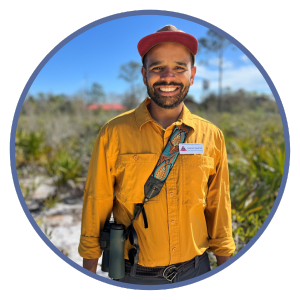
Sahas S. Barve
John W. Fitzpatrick Director of Avian Ecology, Archbold Biological Station
He/Him/His
Read Sahas’ statement.
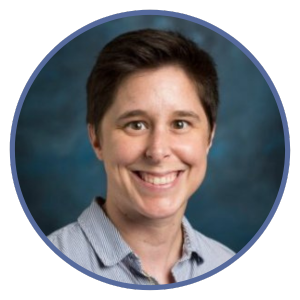
Kristen M. Covino
Assistant Professor (Associate Professor, August 2023), Loyola Marymount University
She/Her | They/Them
Read Kristen’s statement.
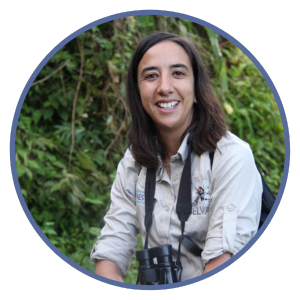
Camila Gómez
Director of Education and Training, SELVA
Read Camila’s statement.
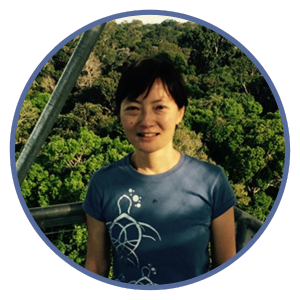
Cristina Yumi Miyaki
Associate Professor, Universidade de São Paulo, São Paulo, Brazil
Read Cristina’s statement.
Student Representative (Term ending 2025)
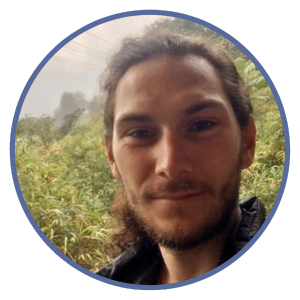
Jacob Drucker
Ph.D. Candidate, Committee on Evolutionary Biology, University of Chicago; Research affiliate, Field Museum of Natural History
He/Him
Read Jacob’s statement.
Q&A, Bios, and Candidate Statements
Sahas S. Barve
Ph.D., 2017, Cornell University. M.Sc., 2009, Wildlife Institute of India. B.Sc., 2007, Mumbai University. Published in Current Biology, Proceedings of the National Academy of Sciences USA, Proceedings of the Royal Society B: Biological Sciences, Ecology, American Naturalist, Ecography, Journal of Avian Biology, Ibis, Ecology and Evolution, among others. Ned K. Johnson Early Investigator Award 2021. Alexander Wilson Best Student Paper award 2016. AOS member 2016–present. Elective member, 2022. Member, Diversity and Inclusion Committee 2017–present. Member, Early Professional’s committee 2019–present; Member Meeting Coordination Committee, 2021–2022 (Diversity and Inclusion and Accessibility subcommittee lead and member Plenary Seminar and Workshops subcommittees). Student Presentation awards judge 2017–present. Diversity and Inclusion Travel Awards Committee Co-chair 2021–present.
In my research I take both single- and multi-species approaches to understand avian life history evolution. Currently, I am leading the long-term study of the Federally Threatened Florida Scrub-Jays (Aphelocoma coerulescens) at Archbold Biological Station (Florida). Here we study the evolution of cooperative breeding behavior, natal dispersal strategies and the effect of climate change on animal behavior. I am also associated with the long-term study of Acorn Woodpeckers (Melanerpes formicivorus) at Hastings Natural History Reservation, California where I have led the development and deployment of an automated radiotelemetry system to study social associations and extra-territorial movements. My comparative, multi-species research investigates the evolution of morphology and behavior that birds use to cope with the harsh climatic conditions on the world’s highest mountains. I have mentored over 25 undergraduate and 10 graduate students from India, the US, Germany, France and Sweden. For the past 3 years, I have been on the editorial board of Indian Birds, the premier, open-access Indian avian natural-history journal and will be one of two subject editors starting summer of 2023. Science education and outreach energize me. Over the last 5 years I have given over 50 invited seminars, led social media campaigns, and interviewed for podcasts and ask-me-anything videos that have engaged with more than 1 million members of the public.
Why are you interested in serving the American Ornithological Society in this leadership position?
The AOS is my home society and my professional community. I have thrived personally and professionally in the welcoming and supportive environment the AOS has created for its members. I want to work towards ensuring that all AOS members have the same positive experience within the Society as we continue making strides towards being a more diverse, welcoming and inclusive international community of avian biologists.
What key interests, experience, or skills would you bring to this position?
I have a strong track record in working towards increasing diversity, equity and inclusion of minorities in the sciences. I have been a member of the Diversity and Inclusion (D&I) Committee of the AOS since 2017, where I have been the conference lead for D&I in 2021 and 2022. I have been the co-chair of the D&I Travel Awards committee since 2021. I have been involved in initiatives to increase the membership of Black scientists within the Society, and on a committee exploring the costs and benefits of making AOS journals open-access to increase accessibility of our science. I have also been part of organizational structure, and professional culture change initiatives at the National Museum of Natural History as a subcommittee lead on internal structural and employee cultural reform task forces at the museum. As an immigrant and person of color who has grown from a graduate student to an early professional in ornithology, I bring a diverse perspective relevant to the rapidly evolving face of American ornithology. As an Elective Councilor I would bring my experience in D&I and structural reform initiatives to work towards making sustainable changes that create a sense of belonging towards the Society in a larger section of members as they get involved in Society initiatives and benefit from its programs. I would be honored to help the Society in utilizing evidence-based metrics to design and execute Society policies while maintaining a strong monitoring and evaluation component to achieve our targets and yet be adaptive and nimble in our work.
How have your background and experiences prepared you to be effective in a professional scientific society that values diversity?
Over several years of professional service within the AOS and at my professional institutions, I have come to realize the critical importance of making a conscious effort to organize a diversity of voices in any decision-making process. I understand that bringing a diverse set of people together, especially in a volunteer organization like the AOS, is difficult. Moreover, a diversity of opinions can also mean that finding consensus is not easy and bringing about change is slow. However, having a broad representation of stakeholders increases the confidence of the general members of any organization that their interests are valued.
My previous professional experiences and service have prepared me to put in the work towards an inclusive and sustainable structural change within organizations. I am most thrilled to stand for elections for Elective Councilor because of the concerted effort the AOS leadership has made towards transforming the Society into an organization that is more welcoming, accommodating, and supportive of all its members. As ornithology rapidly evolves into a more socio-culturally vibrant community, I am excited to be a part of a team that celebrates a variety of voices, values, and identities and leverages their synergy to enhance the quality and impact of the Society’s science and conservation actions.
Kristen M. Covino
Assistant Professor, Biology Department, Loyola Marymount University (LMU). Ph.D. 2016, Univ. Southern Mississippi. M.Sc. 2008, Univ. Maine. LMU Ascending Scholar Award (2023), LMU Award for Excellence in Diversity and Inclusion (2022). Published in Auk/Ornithology, Avian Conservation & Ecology, J. Avian Biology, J. Ornithology, Ornithological Applications, and Wilson J. Ornithology, among others (e.g. J. Animal Ecology, Hormones & Behavior).
AOS member 2006–present. James G. Cooper Early Professional Award, 2018. AOS Elective Member, 2017; Elected Fellow, 2023. Member, Early Professional Awards Committee, 2018–present; Member, Diversity & Inclusion Committee, 2019–present; Member, Rainbow Lorikeets Out to Innovate Caucus, 2019–present; Student Presentation Awards judge, 2019; Member, Early Professional Committee, 2018–2023; Member, Bird Naming Taskforce subcommittee and Co-host of the 2021 Community Congress & Public Q&A, 2020–2022; Co-host, LGBTQIA+ and Allies Social, 2021; Host, LGBTQIA+ and Allies Social, North American Ornithological Conference VII, 2020; Member, Diversity and Inclusion Committee, North American Ornithological Conference VII, 2019–2020; Member, Student Affairs Committee, AOU/COS, 2014–2016. Attended ~14 AOS/AOU/COS meetings.
My research topics are diverse but fall in two focal areas: (1) endocrinology/physiology and annual-cycle transitions and (2) long-term migratory patterns and phenological change. I primarily work with undergraduates, and thus my choices of research projects are driven by my goal of including students as research partners. I specifically seek out projects that not only coincide with my own interests, but that also provide opportunities for students to contribute to active research through field work (summers) or lab work and data analysis (academic year). Our current projects include investigating the link between testosterone and behaviors in breeding Great Black-backed Gulls, studying variation in foraging preferences in gulls vis-à-vis isotopic niche modeling, using bird banding data to model long-term variation in passerine migration phenology, and documenting recruitment and productivity in a local Tree Swallow population. Since starting my position as Assistant Professor (2018), I have mentored seven senior capstone or honors thesis students and collaborated with over 40 undergraduate researchers. I also serve on two doctoral committees and currently collaborate with an additional three graduate students from other universities.
Why are you interested in serving the American Ornithological Society in this leadership position?
AOS is an organization with a broad impact on the ornithological and birding communities. Thus, the decisions made by the AOS governance influence current and future AOS members and community members beyond AOS. I am standing for election as councilor so that I can contribute my own perspective to the governing body of AOS. I am interested in pushing AOS to position itself as a leader in diversity, equity, inclusion, belonging, and justice efforts, to strengthen its support for folks from all career stages and across a greater breadth of ornithological careers, and to continue its legacy of ornithological research and conservation support. Further, my experience as an academic from a non-R1 institution would bring a different perspective to discussions traditionally had by AOS Council and, together with other diverse perspectives, can enhance AOS’s ability to elevate folks from a broader range of the ornithological community and deepen AOS’s impact on ornithological research and conservation.
What key interests, experience, or skills would you bring to this position?
Over the last several years, I have served AOS as well as other ornithological societies/communities (e.g. Wilson Ornithological Society, North American Banding Council) in various capacities including as committee member, committee co-chair, task group member, and voting councilor. I have gained experience working with and on committees, working groups, and society voting bodies. Through this work, I have deepened my understanding of the mechanisms through which professional societies function and can make progress and the hurdles that can stall impactful change. Throughout my 20 years of ornithological field and lab work, I have come to understand how vitally important it is for individuals new to either field or lab research to have support and mentorship. I am a staunch advocate for mentoring as a crucial element to ornithological research and have served as a mentor in several capacities (e.g. research supervisor, NABC Trainer). In addition to bringing this perspective, I am interested in enhancing AOS’s impact by broadening participation in AOS and ornithological research across career types.
How have your background and experiences prepared you to be effective in a professional scientific society that values diversity?
I apply a Diversity, Equity, Inclusion and Justice (DEIJ) framework to my teaching, scholarship, and service. This is evident in my service work (committee participation), scholarship (co-author on multiple DEIJ-related publications), mentoring (barrier-reducing inclusion), and teaching (inclusive teaching pedagogies). In all these areas, I seek to not only “do DEI” (e.g. specific efforts) but to also improve my ability to consider perspectives beyond my own, to deepen my understanding of systemic barriers, and to engage in meaningful change both in my own actions and by pushing groups and institutions with which I engage to lessen systemic barriers to inclusion, a sense of belonging, and meaningful participation. I currently serve on the AOS Diversity and Inclusion committee, have undertaken several DEI-related efforts both within and outside of AOS, regularly undertake DEIJ-related pedagogical training, am a member of the LGBTQIA+ community (and AOS’s Out to Innovate Caucus, The Rainbow Lorikeets), and am a parent who must balance family and field work. Finally, I also assisted in the development of AOS’s successful application to the NSF grant program Leading Cultural Change Through Professional Societies of Biology (BIO-LEAPS). I currently serve as one of three ‘senior personnel’ on the project titled “Co-creation of affinity groups to facilitate diverse and inclusive ornithological societies.”
Camila Gómez
Colombian biologist, with a Ph.D. from Universidad de Los Andes, where I studied the ecology and stopover behavior of migratory birds. I was a Rose postdoctoral fellow at the Cornell Lab of Ornithology from 2018 to 2021. I am a founding member of the science and conservation group SELVA, and currently work there as director of education and training. I have published papers in Biota Colombiana, Ornitología Colombiana, Biological Conservation, Journal of Applied Ecology, Conservation Biology, Proceedings of the Royal Society B, Ecology, Ecological Monographs, Journal of Ornithology, Journal of Biogeography, Oecologia, Bird Conservation international, Scientific Reports, Avian Conservation and Ecology, The Wilson Journal of Ornithology, Ornitología Neotropical, ibis, The Auk, The Condor, Journal of Field Ornithology. I am an associate editor for Ornithological Applications, and for Ornitología Colombiana.
I joined the AOS as a Ph.D. student in 2017, and have attended meetings in Washington 2016, Michigan 2017, Costa Rica 2018, and the virtual meeting in 2020. My service to the AOS includes participating in the student mentorship talks, and participating in the Conservation Committee, particularly contributing to design and evaluation of the recently launched Latin American and Caribbean Conservation Research Awards. My research interests include ecology and evolution of migratory behavior; enhancing productive landscapes for biodiversity and people; historical changes in bird communities, and Understanding drivers and consequences for ecosystem function.
Why are you interested in serving the American Ornithological Society in this leadership position?
I hope that by doing so I can contribute to increase the impact of the AOS in the Neotropics. I would try to do this by including a voice with a Neotropical perspective where needed, and by reaching out to all my colleagues and contacts in the Neotropics to participate and take part in this dynamic and growing network.
What key interests, experience, or skills would you bring to this position?
I have ample experience of ornithological work in the Neotropics, including academic research, student and professional training, and working closely with local communities by building bridges to share scientific knowledge with broad audiences. I may also bring insights as to how rigorous science can be achieved from outside academia.
How have your background and experiences prepared you to be effective in a professional scientific society that values diversity?
One of the reasons that has led me to work in the research and conservation world, is the belief that most conservation and social problems are a result of lack of knowledge and unfortunate or untimely acting caused by a long history of exclusion, discrimination and violences among different groups of people. I work every day to contribute to eliminate these inequalities, to celebrate and promote diversity in all its forms, and to share my knowledge as well as learn from all those around me, so that together we can find ways to make the world a bit better.
Cristina Yumi Miyaki
Associate Professor of the Universidade de São Paulo (USP) and head of the Departamento de Genética e Biologia Evolutiva. Ph.D. 1996, USP. M.S. 1993, USP. Published in Ornithology/The Auk, Nature Communications, Science Advances, Evolution, Journal of Biogeography, Molecular Ecology, The American Naturalist, Molecular Phylogenetics and Evolution, Current Biology, Systematic Biology, Proceedings of the Royal Society of London, and Molecular Biology and Evolution among others. AOU Honorary Fellow 2005. AOS Elective Member 2015. AOS Fellow 2019. AOS Committee for the Nomination of Fellows and Elective Members 2020–2022. President of the Brazilian Society of Ornithology 2011–2013. Corresponding member of the German Ornithologists Society. Member of various working groups for the conservation of endangered species for the Brazilian government. Member of the Conservation Genetics Specialist Group for the International Union for Conservation of Nature (IUCN). Focal point of contact for the Species Survival Commission of the Brazilian IUCN Committee.
My main interests are in Conservation Genetics and Biogeography of Neotropical birds. In our lab we use genetic and genomic data to help plan actions for the conservation of endangered species (especially psitacids) and to infer micro and macro evolutionary processes that may be associated with the diversification of taxa. We are fortunate to have had many collaborators around the globe to learn and discuss ideas. I supervised 14 undergraduate, 17 M.S., and 12 Ph.D. students and 12 postdoctoral scholars, and co-supervised two M.S. and two Ph.D. students.
Why are you interested in serving the American Ornithological Society in this leadership position?
I enjoy to collaborate with people and institutions with values that are similar to mine. When I read the documents in AOS’s webpage about codes of conduct, policies, non-discrimination policy, and diversity statement, I was very well impressed and decided to participate more in the AOS.
What key interests, experience, or skills would you bring to this position?
I have organized various meetings, including the 2010 International Ornithological Congress in Brazil with around 1,200 participants. I was President of the Brazilian Society of Ornithology (2011–2013) and second Treasurer of the Brazilian Society of Genetics (2014–2016). As I believe the general scenario (and specially the research scenario) in Brazil is different from that in the U.S., I may be able to bring a different view for discussions in the AOS.
How have your background and experiences prepared you to be effective in a professional scientific society that values diversity?
I attended my first meeting organized by the Brazilian Society of Ornithology when I was a Ph.D. student. Our small lab group was seen as the “strange geneticists” at that time, but soon Brazilian ornithologists understood that genetics wasn’t competing with other areas of research, but could be complementary. This is an example of how new views, different ways of thinking, and diversity of background can enhance collaboration. And I do not see how science can improve without collaboration.
Jacob Drucker
M.S. 2021, University of Chicago, B.A. 2015, Hampshire Published in Behavioral Ecology, Caribbean Ornithology, Cotinga, Boletín de la Unión de Ornitólogos del Perú, and contributing author of Birds of the World species accounts. AOS member 2019–present, AOS Student Affairs Committee Co-chair, 2021–2023.
I am interested in how birds interact with tropical climates over ecological and evolutionary time. My dissertation has two distinct foci: I study how intraspecific variation in diet, foraging behavior, and home range size contribute to the assembly and vulnerability of bird communities along the slopes of the Ecuadorean Andes. I also ask how tropical climatic regimes structure migratory bird flyways in space and time by using a network of weather surveillance radars and acoustic monitoring stations across Colombia. Prior to graduate school, I conducted extensive bird-related research and outreach for various government, academic, non-profit, and commercial institutions in the U.S. and Latin America for over a decade.